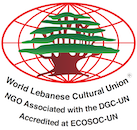
نص المقابلة Intreview in Arabic
English Translation :
As Lebanon enters the “countdown” phase, with the registration deadline for non-resident Lebanese to vote in the upcoming parliamentary elections fast approaching, a political tug-of-war dominates the scene. One camp supports implementing Article 122 of the current election law, which restricts the representation of the diaspora to just six seats. The other insists on granting expatriates their full right to vote for all 128 parliament members.
In the midst of this debate, some see this specific timing of “tension” as an “attempted coup” and a plan that might put the possibility of an “election postponement” at the forefront of options, despite assurances from relevant authorities that the elections will take place on schedule. Amidst this conflict over the “rights of expatriates” and its various dimensions, the question remains: Who speaks on their behalf, and who decides for them? And what do expatriates actually want?
In this context, Georges Abi Raad, Secretary-General of the World Lebanese Cultural Union (WLCU), stresses in an interview with “An-Nahar” newspaper that “there are licensed institutions that speak for the diaspora, foremost among them the World Lebanese Cultural Union, which was founded in 1959 and began operating legally and practically through its branches spread across the world, without monopolizing the votes of expatriates.” He explains that “the vast majority consider their departure from Lebanon to be involuntary, due to economic or security reasons, and they have the right to compensate for that by voting for all 128 MPs. It is illogical to limit representation to only six MPs, as this number will not be able to confront the other parliamentary blocs to achieve their demands.”
He indicates that the figures demonstrate the extent of the expatriates’ loss of confidence in Lebanon, emphasizing that “if the expatriates are not granted their rights this time too, expatriate businessmen might have a word, both literally and figuratively, regarding the re-evaluation of their investments inside Lebanon.”
For his part, Fadi Saad, Head of the Lebanese and Expatriate Cultural Council and a writer, believes that “the election law conundrum has been repeating itself since the founding of Lebanon. With every election due, everyone starts their engines to secure a law that aligns with their orientations, which is normal and a legitimate demand for every group. But the fundamental problem is not just about six MPs or 128, but the absence of a fixed election law to be adopted in all electoral cycles.”
He points out that the situation within the diaspora is no different from the reality in Lebanon, as there is a group of expatriates who support electing 128 MPs, another that prefers proceeding with the current law, while a third group demands a permanent law that puts an end to repeated changes.
As for Hiyam Boustany, Director General of the Maronite Foundation in the World, she says that “expatriates, first and foremost, speak for themselves,” stressing that “the majority with whom the Foundation communicated lean towards the right to vote for all 128 MPs from their countries of residence, while the idea of six MPs is considered a rift among potential candidates in the diaspora.”
She notes that the Foundation’s visit to the President of the Republic, Joseph Aoun, was in the framework of supporting the rights of expatriates, whether it be the right to regain Lebanese nationality or the right to vote for those they wish to represent them, considering that “Lebanese abroad are clinging to Lebanon despite the difficulties with the aim of voting.”
Boustany concludes: “We felt this sentiment when promoting the recovery of nationality and the registration of personal status events.”
 World Lebanese Cultural Union
World Lebanese Cultural Union

